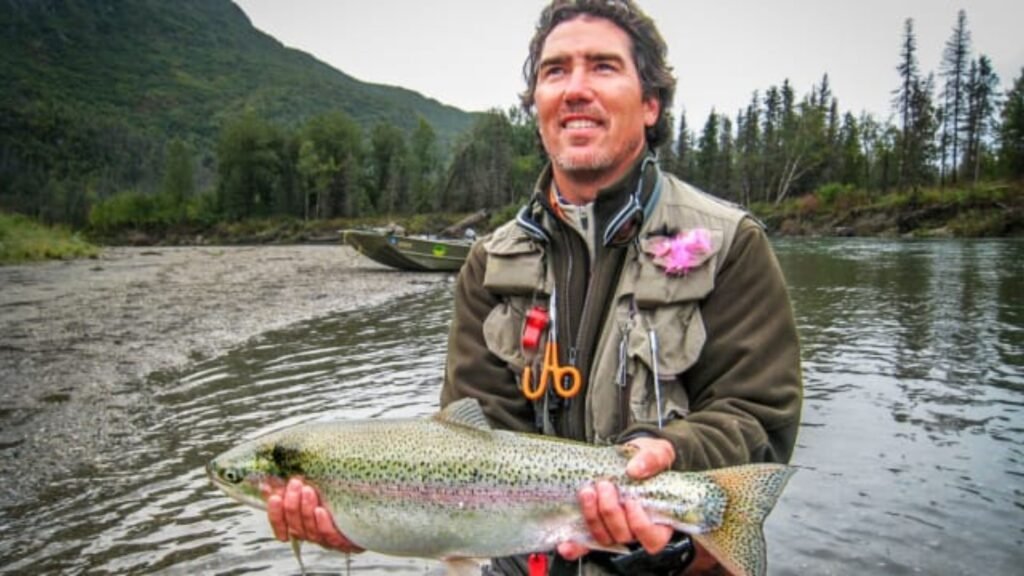Planning a salmon fly fishing trip requires careful preparation to maximize your chances of success and enjoyment. Follow these steps to organize a memorable fishing adventure:

How to Plan a Salmon Fly Fishing Trip
Choose the Destination
- Research Locations: Identify renowned salmon fishing destinations known for their abundant populations and suitable fishing conditions.
- Consider Seasons: Research the best times of the year for salmon runs in your chosen destination. Timing can significantly impact your fishing success.
- Accessibility: Choose a location that suits your travel preferences and provides convenient access to fishing spots.
Research Regulations and Permits
- Check Fishing Regulations: Review local fishing regulations and licensing requirements for the area you plan to visit. Ensure you have the necessary permits and understand any catch limits or restrictions.
- Seasonal Restrictions: Some areas may have specific regulations during certain seasons or for particular salmon species. Stay informed to avoid any legal issues.
Select Accommodation
- Proximity to Fishing Spots: Choose lodging close to prime fishing locations to minimize travel time and maximize fishing opportunities.
- Amenities: Consider amenities such as equipment storage, drying rooms for gear, and proximity to dining options or grocery stores for convenience.
Prepare Your Gear
- Essential Equipment: Ensure you have the appropriate fly fishing gear, including rods, reels, lines, and a selection of salmon flies suited to the destination and season.
- Backup Gear: Pack spare lines, leaders, and essential tools like pliers and clippers in case of equipment failure or loss.
Study Fishing Techniques
- Salmon Fly Selection: Research and prepare a variety of salmon fly patterns suitable for the target species and water conditions.
- Casting Techniques: Practice casting techniques, including accuracy and distance casting, to effectively present flies in different water currents.
Monitor Weather Conditions
- Weather Forecasts: Stay updated on weather forecasts for your fishing days. Be prepared for changing weather conditions and adjust your plans accordingly.
- Safety First: Prioritize safety by monitoring river conditions and avoiding fishing in hazardous weather or high water levels.
Plan Fishing Itinerary
- Daily Schedule: Create a fishing itinerary based on optimal fishing times and tides. Plan early morning and late evening sessions when salmon are typically more active.
- Explore Varieties: Explore different fishing spots along rivers or lakes to increase your chances of encountering salmon.
Pack Essentials
- Clothing: Pack suitable clothing for variable weather conditions, including waterproof layers, hats, sunglasses, and sturdy footwear for wading.
- Personal Items: Carry personal items such as sunscreen, insect repellent, a first aid kit, and any necessary medications.
Educate Yourself on Local Flora and Fauna
- Environmental Awareness: Respect the natural environment and local wildlife. Familiarize yourself with local flora and fauna to minimize your impact while fishing.
Travel and Accommodation Reservations
- Book in Advance: Make travel arrangements and accommodation bookings well in advance, especially during peak fishing seasons when availability may be limited.
- Travel Insurance: Consider travel insurance that covers fishing-related activities, including equipment loss or medical emergencies.
Tips for a Successful Trip:
- Local Guides: Consider hiring a local guide for expert knowledge of fishing spots, techniques, and local regulations.
- Stay Flexible: Be adaptable to changes in weather, fishing conditions, and unexpected challenges during your trip.
- Enjoy the Experience: Embrace the thrill of salmon fly fishing and appreciate the natural beauty of your chosen destination.
Planning a salmon fly fishing trip involves meticulous preparation and attention to detail. By following these steps and being well-prepared, you can enhance your chances of a rewarding fishing experience surrounded by nature’s beauty and the thrill of catching salmon.


